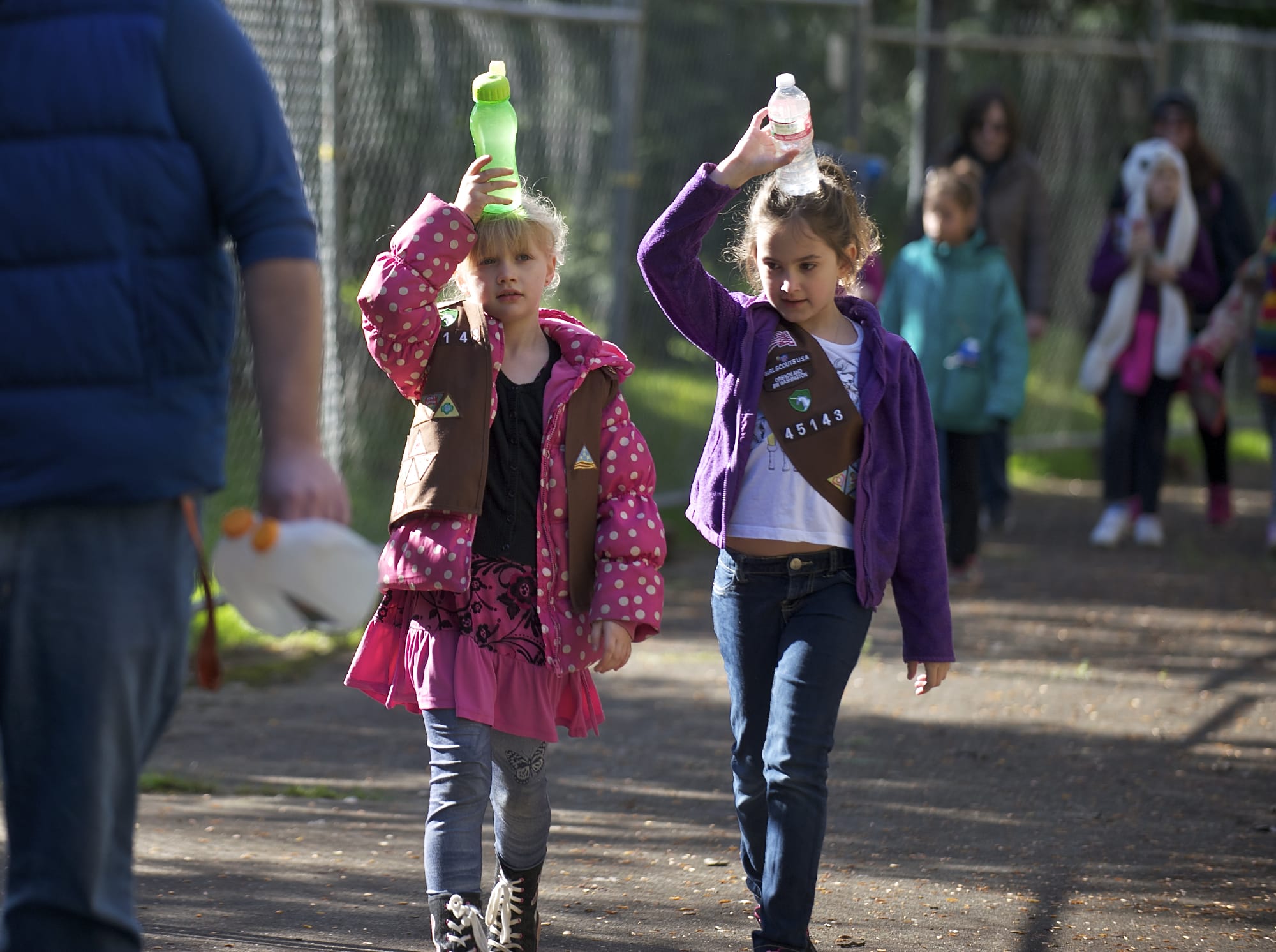To learn about the next Walk 4 Water event, visit http://waterafrica.org/walk4water-about.
Bill Savage stopped in his tracks Saturday morning outside Vancouver’s Water Resources Education Center when the 42-pound plastic water jug he was wheeling to his car listed and fell to the ground.
It was too heavy to carry by hand without risking a back injury, he said. But for a couple of women he knows in a rural African village, not a day goes by without several mileslong treks from their mud huts to the local water hole and back carrying a bucket of water just that heavy atop their heads.
Savage, who wrestled the five-gallon jug back onto a small cart, brought the container to the center for this year’s Walk for Water, an event designed to draw attention to the constant struggles people in less-privileged areas of the world endure just to get drinking water.
The center hosted the walk in honor of World Water Day, a designation the United Nations made in 1993 to draw attention to critical water problems throughout the world every year on March 22.
This year, about 50 parents and children showed up for a short stroll down to the Columbia River, where they filled plastic containers with water to carry back to the center. They had the option of going a mile to the water and back, or taking a 3.1-mile route instead.
Most chose the shorter route, and not all the kids carried water. Many walked back up from the river with only a small bottle or partially filled plastic gallon jugs, but the message still appeared to leave an impact, Savage said.
“They’re going to be a little different for having come to this walk,” he said.
Along the way, they passed signs sharing the World Health Organization’s statistics about water quality and water-related illnesses in areas stricken with poverty.
Some of the facts:
• More than 22,000 children in Uganda die from drinking unsanitary water every year.
• In Africa, 90 percent of wastewater is discharged into the environment without being sanitized.
Savage attends local events like the Walk for Water to spread the word about these issues. After traveling to Zambia with his church in 2005, he returned and formed WaterAfrica, a nonprofit geared toward raising money and awareness to improve access to clean water in rural African villages.
Often on weekends, he spends time with children in Southwest Washington and Oregon sharing his story about what he’s learned on his travels.
“I walked with a woman about a mile from her mud hut to the place where she got her water, and it was this yucky brown stuff,” Savage said. “I asked her if she boiled it before she gave it to her kids, and she said, ‘No, I just don’t have enough fuel to do that.'”
Several years ago, he met another woman in Africa who made as many as eight trips a day to gather water for her children.
“She said two of her children at that time were sick from diarrhea and she knew it was the water she was gathering that made them sick,” Savage said.
When he visited again a couple of years later, everything had changed, thanks to a newly drilled well that allowed them access to clean water, he said. “It’s the transformation to go from hopeless to hopeful, to go from just surviving to actually making a life.”




